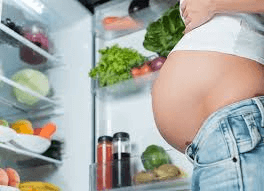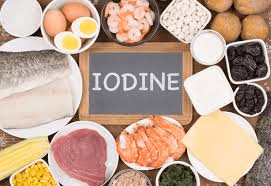Foods to Avoid During the Third Trimester: Comprehensive Guide

The third trimester of your pregnancy is finally here. You’re on the home stretch, and before you know it, your baby will make her grand entrance into the world. Everyone’s excited, and you’re likely feeling tired and ready for it to be over. That’s completely normal. Your baby is growing rapidly as she prepares to enter the world, which can be physically demanding. During this stage, it’s crucial to rest frequently, stay hydrated, and continue eating small, healthy meals regularly. Although your diet in the third trimester doesn’t drastically differ from the second, there are a few additional foods you should avoid to ensure both your comfort and your baby’s health. Here’s a detailed guide on what to avoid:
1. Salt
While salt is never beneficial in high quantities, it’s especially important to limit your intake during the third trimester. Many women experience high blood pressure during this stage, and excessive salt can exacerbate the problem. Unfortunately, this means you should be cautious with salty snacks like pretzels and potato chips. Aim to choose low-sodium options and flavor your food with herbs and spices instead of salt.
2. Spicy Foods
Although spicy foods aren’t inherently harmful to you or your baby, they can cause significant discomfort. As your baby grows, there’s less room in your abdomen for your organs to function normally. This can lead to increased heartburn and indigestion, which spicy foods can aggravate. To avoid unnecessary discomfort, it’s best to steer clear of spicy dishes until after your baby is born.
3. Raw Vegetables
Raw vegetables, while healthy, can cause gas and bloating, which many expectant mothers find uncomfortable during the third trimester. It’s essential to continue eating plenty of vegetables, but consider cooking them to reduce the likelihood of gas. Steaming, roasting, or sautéing vegetables can make them easier to digest while retaining their nutritional value.
Also read: Understanding Hair Loss During Pregnancy
4. Caffeine
Though small amounts of caffeine are generally considered safe during pregnancy, it’s wise to limit your intake, especially in the third trimester. Excessive caffeine can affect your baby’s heart rate and overall health. Stick to one cup of coffee per day or opt for decaffeinated beverages to stay within safe limits.
5. High-Mercury Fish
Avoid high-mercury fish like shark, swordfish, king mackerel, and tilefish. Mercury can harm your baby’s developing nervous system. Instead, opt for low-mercury fish such as salmon, shrimp, and canned light tuna, which are safer and still provide beneficial omega-3 fatty acids.
6. Unpasteurized Dairy Products
Unpasteurized milk, cheese, and other dairy products can contain harmful bacteria such as listeria, which can cause severe infections. Always choose pasteurized dairy products to ensure they are safe for you and your baby.
7. Undercooked or Raw Meat and Eggs
Raw or undercooked meat and eggs pose a risk of foodborne illnesses such as salmonella and toxoplasmosis, which can be particularly dangerous during pregnancy. Ensure all meat is thoroughly cooked, and avoid foods like sushi with raw fish or dishes with undercooked eggs.
Tips for a Healthy Third Trimester
- Stay Hydrated: Drink plenty of water throughout the day.
- Frequent Meals: Eat small, balanced meals regularly to maintain your energy levels and avoid overeating.
- Balanced Diet: Focus on a diet rich in fruits, vegetables, whole grains, lean proteins, and healthy fats.
- Prenatal Vitamins: Continue taking your prenatal vitamins to ensure you and your baby are getting essential nutrients.
By being mindful of these dietary recommendations, you can help ensure a healthier, more comfortable third trimester. Always consult with your healthcare provider for personalized advice tailored to your unique pregnancy needs.
Also read: The Importance Of Calcium During Pregnancy






